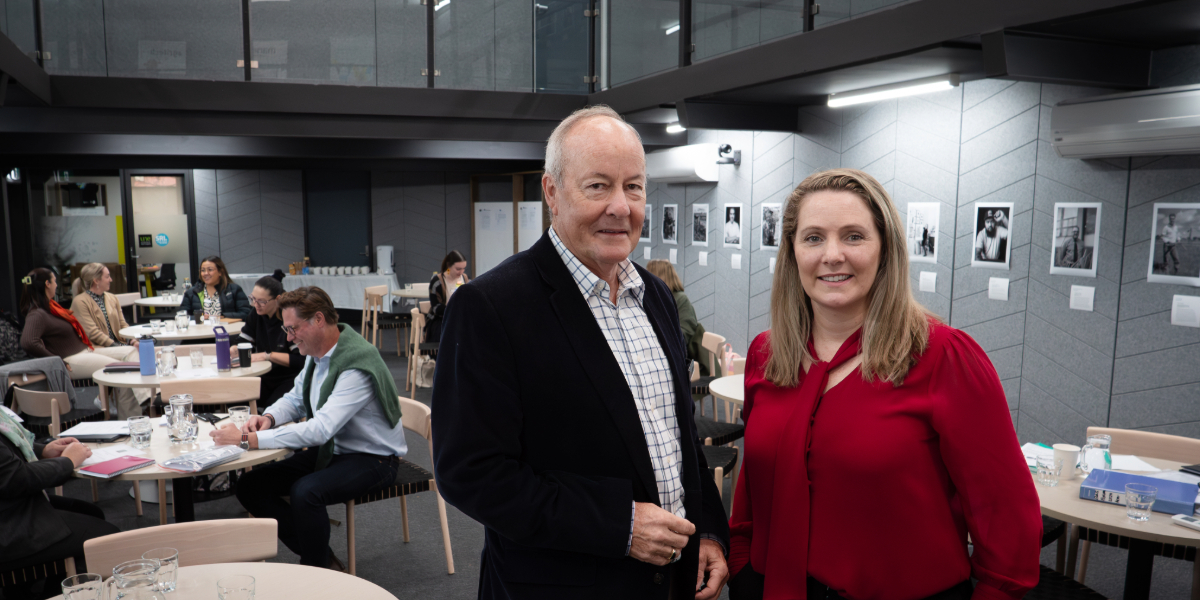Student Support Officers are needed in NSW primary schools to address the continuing fallout of COVID lockdowns and mounting mental health crisis, according to the organisers of a University of New England forum held this week in Armidale.
With 14% of NSW students aged 4-16 years now experiencing mental health problems, school wellbeing from K-12 is critical.
“Wellbeing needs in schools have increased exponentially and we believe early intervention is desperately needed in our primary schools,” said Dr James White, Adjunct Professor in Education at UNE.
“I would like to see a wellbeing support role, like the Student Support Officers introduced in secondary schools, rolled out in primary schools as soon as possible.”
Dr White is a driving force behind the innovative Social Work in Schools (SWiS) program, which since 2010 has seen dozens of UNE Social Work students provide much-needed specialist support to more than 50 disadvantaged NSW school communities.
During placements of up to 500 hours, Bachelor and Master of Social Work Students supervised by a qualified social worker also strengthen their clinical skills.
At a one-day forum in Armidale today, school representatives, Department of Education staff, community agencies, current UNE students and staff met to discuss the wellbeing needs of children and young people in rural communities. They heard how the SWiS program is helping school students to feel safe, connected and more engaged in their education.
Schooling can be particularly overwhelming for students who experience abuse and trauma. The need is underscored by the 2023 Australian Child Maltreatment Study, which found high rates of childhood abuse among 8,500 Australians aged 16-65, with 32% reporting physical abuse, 28.5% sexual abuse, 30.9% emotional abuse and almost 40% domestic violence. Its authors concluded that child maltreatment is endemic in Australia and “highly related to a range of health risk behaviours and conditions”.
“There is a wealth of evidence to support that early intervention is the key to future success for young people who have experienced childhood trauma,” Dr White said.
SWiS placements have been popular and effective in both high schools and primary schools, according to SWiS Program Manager Carrie Maclure.
“This is especially pronounced in rural and regional NSW, where professional services are limited and public schools bear most of the mental health burden,” she said.
“In many, particularly more remote schools that lack a full-time counsellor or access to professional social workers, the UNE SWiS students play a vital role. A large number of the schools in which they have undertaken their placements are in low socio-economic areas, with high First Nations peoples and refugee enrolments and limited counselling support.”
Ms Maclure said the 2024 SWiS Forum was a great opportunity for key stakeholders to collaborate and consider how to effectively meet wellbeing needs in schools.
“By coming together across disciplines, we are keeping this important issue in the spotlight,” she said. “Wellbeing support is vital in schools, and rural school students often have very different needs to their metropolitan counterparts. The social work role in schools is incredibly valuable because support can be tailored to suit individuals while also addressing broader community needs.”
As well as exploring the strengths of the SWiS program, state-wide participants in today’s forum at UNE’s NOVA drew on national and international models of support.
Like what you’re reading? Support The New England Times by making a small donation today and help us keep delivering local news paywall-free. Donate now.

